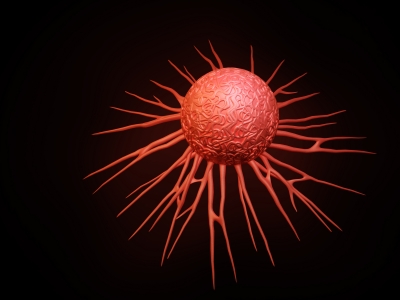TRIGR Therapeutics has expanded bispecific immuno-oncology pipeline with exclusive global license of clinical stage, dual angiogenesis inhibitor from ABL Bio.

Image: TR009 single agent clinical activity has been demonstrated across all dose levels among heavily pre-treated cancer patients with solid tumors including gastric, colon, GIST, and ovarian cancers. Photo: courtesy of dream designs / FreeDigitalPhotos.net.
Subscribe to our email newsletter
The companies have entered into a collaboration and license agreement for TR009 (formerly known as ABL001 or NOV1501), an ABL developed bispecific antibody candidate targeting two important angiogenic factors, VEGF and DLL4.
The license agreement is exclusive and global, excluding the Republic of Korea for all oncology indications and excluding the Republic of Korea and Japan for all ophthalmology indications.
This agreement is in addition to the recently announced agreement whereby TRIGR licensed pre-clinical immune engaging bispecific antibodies from ABL.
TR009 is currently in a dose escalation Phase 1a study being conducted at the Samsung Medical Center in South Korea. The phase 1a study is sponsored by ABL and National OncoVenture (NOV), a South Korean government funded oncology drug development program.
A phase 1b study looking to combine TR009 with chemotherapy and a checkpoint inhibitor is expected to commence in the latter part of 2019.
To date, 12 patients have been dosed with TR009 and no dose-limiting toxicities (DLTs) have been reported. Based on preliminary patient data, TR009 single agent clinical activity has been demonstrated across all dose levels among heavily pre-treated (5+ lines of prior therapy) cancer patients with solid tumors including gastric, colon, GIST, and ovarian cancers.
At the mid-dose level cohort, more than half of the patients have experienced durable clinical benefit in terms of tumor stabilization (stable disease).
Under the terms of the agreement, TRIGR is responsible for global Phase 2 and subsequent clinical development and commercialization activities for TR009 for all oncology indications.
ABL will receive an upfront payment of $5 million and is eligible to receive up to $405 million in regulatory and sales milestones and royalties on oncology sales of TR009 outside of the Republic of Korea.
For ophthalmology indications, TRIGR is responsible for all development and commercialization within its territories. ABL is eligible to receive up to $185 million in milestone payments and royalties on TR009 ophthalmology sales outside of the Republic of Korea and Japan.
TRIGR CEO George Uy said: “We are delighted to expand our relationship with ABL.
“Combining both companies’ core competencies and resources will optimize our chances of success in developing this novel cancer therapy. ABL has an outstanding track record of bispecific antibody research and development with extensive capabilities in antibody engineering and validation.
“We are excited by the promising clinical activity that TR009 has shown thus far, especially in heavily pre-treated patients with gastric and colon cancers, which is a key differentiator of this program. Based on our pre-clinical validation and additional biomarker work, our short-term strategy for TR009 is to pursue an accelerated approval pathway in Asia and we intend to approach both Chinese (NMPA) and Japanese regulators upon completion of our Phase 1a study in mid-2019.
“We also plan to simultaneously seek regulatory guidance from the FDA and EMEA for the registration of TR009 in solid tumor patients in the US and Europe.”
ABL CEO Sang Hoon Lee said: “We are very pleased to enter into this agreement with our partners at TRIGR, a premier team that is highly experienced in taking anti-cancer drugs through clinical development and commercialization.
“The dual VEGF/DLL4 bispecific antibodies currently in clinical development have all shown meaningful clinical activity even in patients who have failed or progressed on multiple lines of prior chemotherapy and VEGF-directed therapies such as Avastin and Cyramza.
“Across all trials, over 140 patients have been treated in monotherapy or in combination settings and we are seeing clinical benefit rates of between 50-85%. This is clearly exciting news for cancer patients worldwide.”
Anti-angiogenic therapy is a cornerstone in cancer care, with sales of Avastin (an anti-VEGF antibody, Roche) and Cymraza® (an anti-VEGF-R2 antibody, Eli Lilly) comprising approximately $7.5 billion in 2017.
Although this class of drugs has proven survival benefits, resistance is creating the need for alternative regimens. Dual blockade of both VEFG and DLL4 is emerging as the next frontier of angiogenic therapy as the combination of these 2 mechanisms has been shown to overcome VEGF inhibitor resistance.
There are 3 programs currently in clinical development targeting anti-VEGF/DLL4: AbbVie’s ABT-165 (Nasdaq: ABBV) which has recently entered Phase 2 in colorectal cancer, Oncomed’s OMP305B83 (Nasdaq: OMED) in Phase 1b in platinum-resistant ovarian cancer, and TRIGR’s TR009 in Phase 1a.
TRIGR is an emerging biotechnology company in the field of immuno-oncology therapies that was incorporated in April 2018 and managed by biopharmaceuticals industry veterans (Roche, Abraxis, Merck, Sanofi Aventis, Pfizer).
TRIGR focuses on clinical development and commercialization of next generation targeted immuno-oncology drugs for the Asian, US and European markets. The Company’s pipeline includes a clinical stage dual-angiogenesis bispecific antibody program (TR009) and pre-clinical immune engaging bispecific antibodies.
Source: Company Press Release
 Advertise With UsAdvertise on our extensive network of industry websites and newsletters.
Advertise With UsAdvertise on our extensive network of industry websites and newsletters.
 Get the PBR newsletterSign up to our free email to get all the latest PBR
news.
Get the PBR newsletterSign up to our free email to get all the latest PBR
news.

